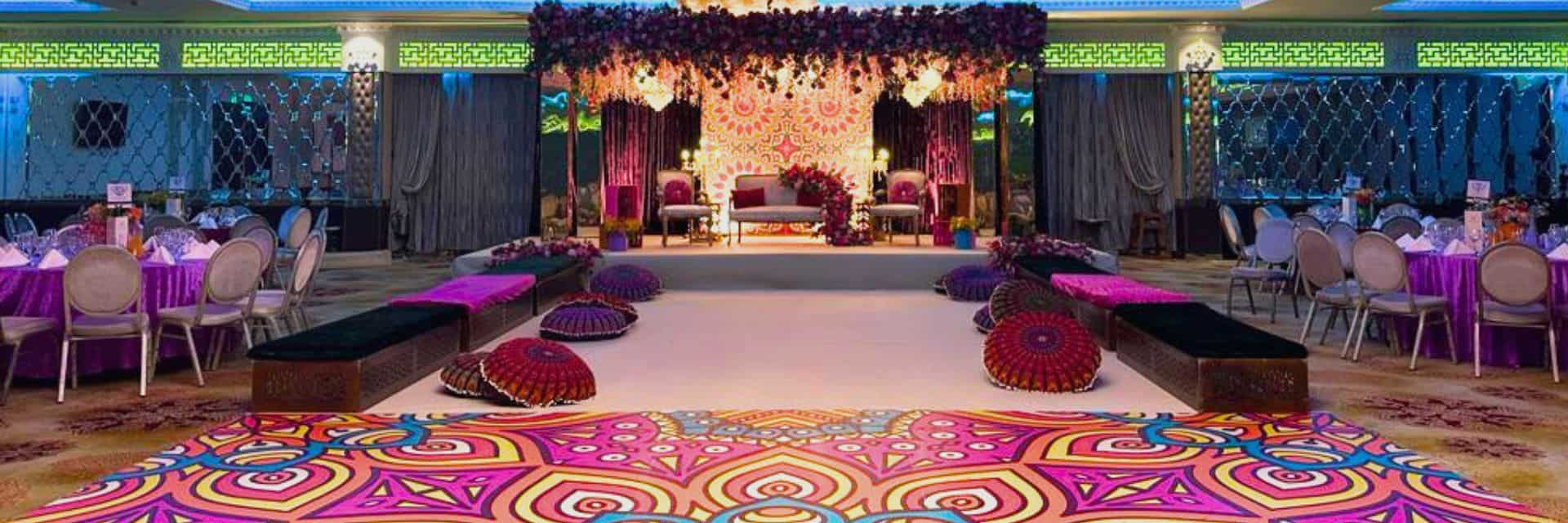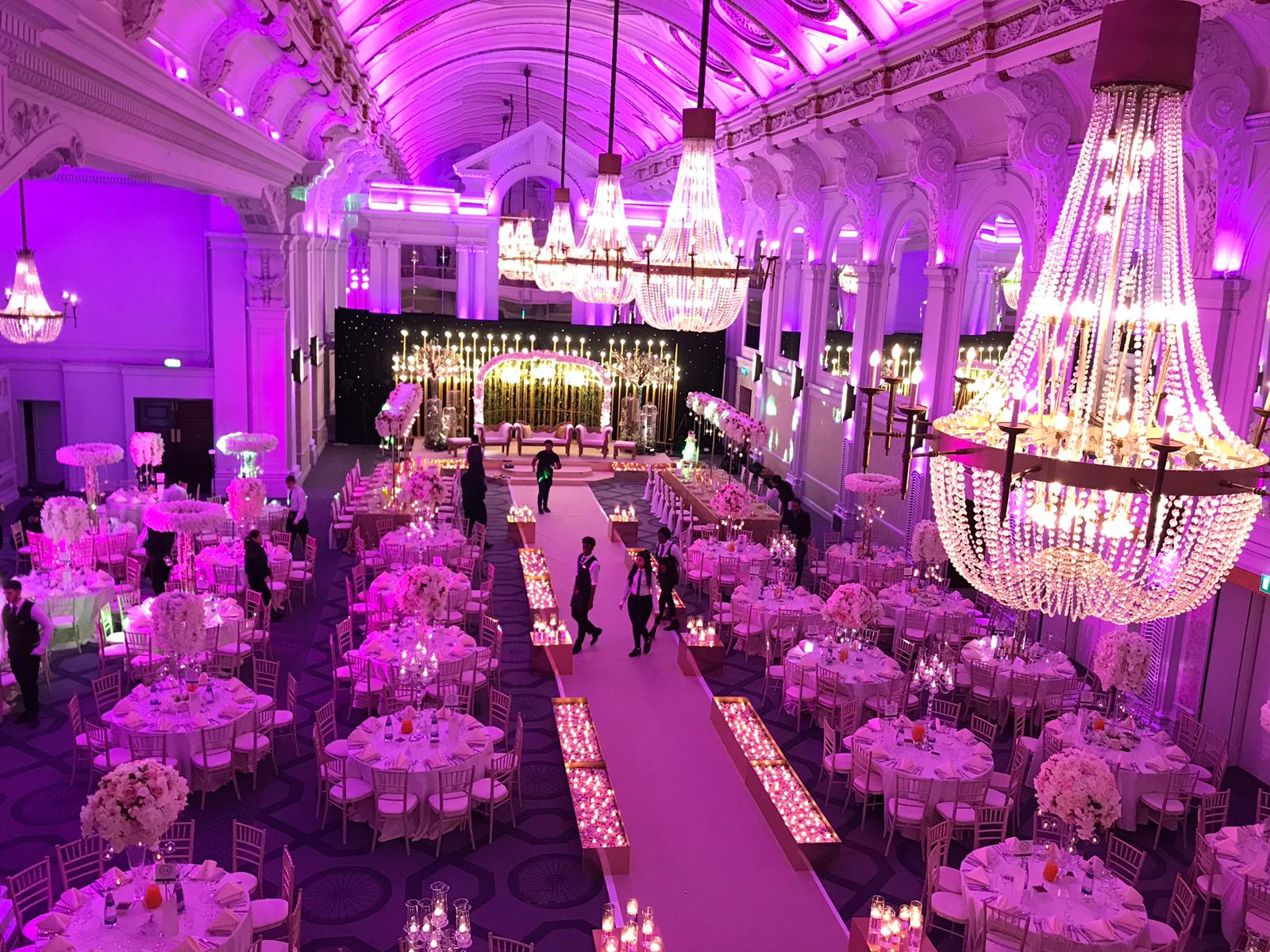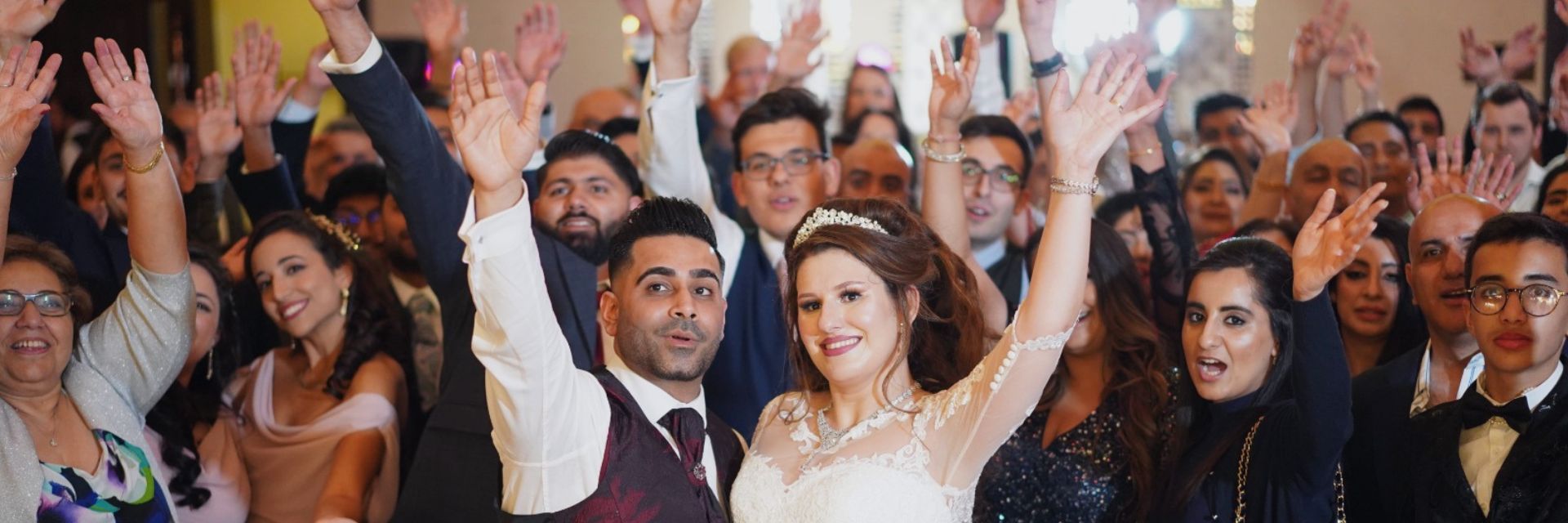The Ultimate Wedding Planning Timeline
 The moment a couple becomes engaged marks the beginning of one of the most exciting journeys of their lives. It’s a time filled with joy, dreams, and anticipation. Yet, beneath the romance lies a reality that every couple eventually faces, planning a wedding can be both exhilarating and overwhelming. From the first “yes” to the final “I do,” managing the many details requires thoughtful organization, clear communication, and careful timing. A well-structured wedding planning timeline can help couples navigate the process with confidence and grace.
The moment a couple becomes engaged marks the beginning of one of the most exciting journeys of their lives. It’s a time filled with joy, dreams, and anticipation. Yet, beneath the romance lies a reality that every couple eventually faces, planning a wedding can be both exhilarating and overwhelming. From the first “yes” to the final “I do,” managing the many details requires thoughtful organization, clear communication, and careful timing. A well-structured wedding planning timeline can help couples navigate the process with confidence and grace.
Twelve to Eighteen Months Before the Wedding: Laying the Foundation
The first stage of wedding planning is all about establishing the vision and making foundational decisions. Around a year or more before the big day, couples should begin discussing the kind of wedding they envision. Whether it’s a grand celebration with hundreds of guests or a small, intimate gathering, clarity on scale and style is crucial.
At this stage, it’s also important to create a preliminary guest list, as this will influence venue choices and budgeting. Setting a realistic budget early helps manage expectations and avoid unnecessary stress later on. Once a budget is in place, the couple can begin researching and booking key vendors. The venue should be one of the first bookings, as availability often dictates the wedding date. Following the venue, securing a photographer, videographer, and wedding planner (if needed) should be prioritized.
Nine to Twelve Months Before: Assembling the Dream Team
With the venue and date confirmed, the focus shifts to building the team that will bring the wedding to life. Couples should start hiring other essential vendors, including the caterer, florist, entertainment, and any rentals needed for the event. For religious or cultural ceremonies, it’s also a good time to meet with the officiant to begin planning the order of service.
At this point, couples should also begin shopping for wedding attire. Bridal gowns, in particular, often require several months for ordering and alterations, so it’s wise to begin the selection process early. Grooms and groomsmen may also explore their wardrobe choices, considering formality, color schemes, and any traditional elements that will be incorporated.
Six to Nine Months Before: Details and Design
This phase of planning is when the vision truly starts taking shape. Couples can now focus on design elements that reflect their personal style. From color palettes and floral arrangements to invitations and décor, every detail plays a role in creating the desired atmosphere.
Save-the-date cards should be sent around this time, especially for destination weddings or celebrations occurring during peak travel seasons. Couples should also finalize hotel blocks for out-of-town guests and ensure transportation logistics are in place.
Now is also the time to schedule engagement photos and begin building a wedding website, which can provide guests with key information such as accommodations, event schedules, and registry details.
Four to Six Months Before: Creating the Experience
With the major bookings complete, attention turns to shaping the guest experience. Tasting sessions with the caterer can be scheduled, as can meetings with the DJ or band to discuss song selections and mood-setting cues. Florists should present mockups or sketches of floral designs, and décor plans should be reviewed and confirmed.
The couple should also begin preparing their vows if writing them personally, and coordinate with the officiant to finalize ceremony scripts and rituals. A clear schedule for the wedding day, including preparation times, photo sessions, and speeches, should start to emerge.
Bridal party attire should be ordered and scheduled for fittings, and hair and makeup trials for the bride can be arranged during this period. The cake design and flavors should also be selected and confirmed with the baker.

Two to Three Months Before: Confirmations and Coordination
As the wedding day approaches, coordination becomes the main focus. Final guest counts should be gathered through RSVP management. Seating charts can be drafted based on confirmed attendance, and print materials such as escort cards, place cards, and ceremony programs can be ordered.
Meetings with vendors to confirm logistics, setup times, and service expectations are essential. This includes confirming song lists with musicians, run-of-show details with the wedding planner, and photo schedules with the photographer.
The couple should also schedule the final fittings for wedding attire and obtain any required marriage licenses, keeping in mind the specific legal timeframes based on their jurisdiction. Honeymoon plans should be finalized, with travel documents, bookings, and itineraries in order.
One Month Before: Polishing the Plans
The final month is all about execution. Confirm all details in writing with vendors and ensure deposits and payments are up to date. A final walkthrough of the venue with the planner or coordinator can provide reassurance and help iron out any potential issues.
Bridal parties should receive a full schedule of events, and rehearsals for the ceremony should be booked, ideally a day or two before the wedding. Emergency kits for the big day, containing items like safety pins, pain relievers, and extra makeup, can be assembled and handed off to a trusted friend or planner.
This is also the time to enjoy a bridal shower, bachelor or bachelorette parties, and moments of reflection with close friends and family.
One Week Before: Final Touches and Relaxation
The last week before the wedding is for tying up loose ends and getting into the right mindset. The final guest list should be confirmed with the caterer, and the seating chart should be finalized. Pick up attire and ensure all accessories are packed and ready.
Beauty appointments such as facials, manicures, and hair treatments can be scheduled during this time. Out-of-town guests should receive welcome information, and the couple should prepare tips or thank-you notes for vendors.
Importantly, this is the time to pause and reconnect with your partner. A quiet dinner or heartfelt conversation can be grounding amidst the flurry of activity.
The Big Day: Saying “I Do”
On the wedding day, the planning gives way to celebration. With a solid team in place and a detailed plan guiding each moment, the couple is free to be present, soak in the joy, and focus on what truly matters: the commitment being made.
By trusting the process and preparing well in advance, the wedding day unfolds not as a series of tasks, but as a meaningful, unforgettable experience filled with love, laughter, and cherished memories.

Conclusion
The journey from engagement to marriage is a time of profound transformation, excitement, and celebration. A carefully planned timeline helps ensure that couples are not overwhelmed by the process and can enjoy each moment along the way. With a thoughtful approach, open communication, and the right support, planning a wedding becomes not just a checklist but a beautiful chapter in the couple’s love story.



